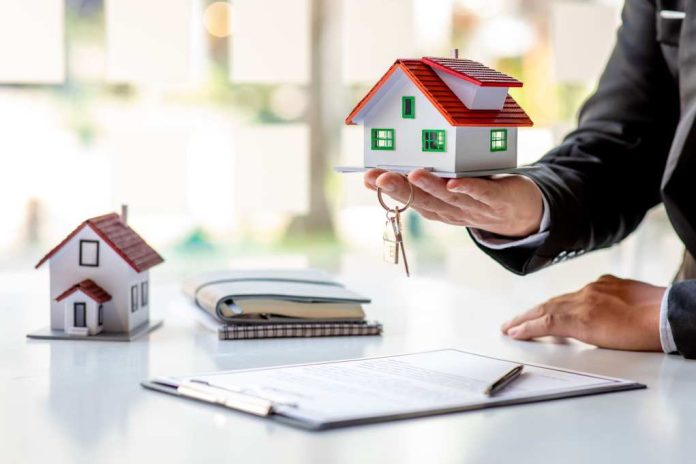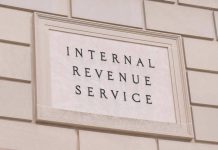
So, you’ve done your research. You found the house you want to buy, and applied for a mortgage. One day, you’re contacted by your lender, they notify you “congratulations, your mortgage loan has been approved.” Now what? Well, hopefully, you managed to buy that house you’ve been dreaming of. Moving on, you need to figure out your plan to pay back that mortgage. We understand that paying back a loan is never fun, especially a loan that big.
The smart thing to do here is to figure out an organized, sustainable way to pay back that debt. After all, the reason why you got a mortgage is to pay for your new house over a long period of time, hopefully stress-free. Hopefully, the tips we share in this article help you figure out a way to repay your mortgage, and hopefully, you can maintain it over time.
Let’s Start By Understanding Mortgages First
Alright, so what’s a mortgage? Put simply, a mortgage is a loan you get to buy a house or land. Considering the amount of money you’d be borrowing, lenders expect you to pay them back over a long period. Speaking of lenders, there are all sorts of them. Some of them can be governmental (such as FHA loans, which we’ll discuss later) and others can be private, such as banks. Different lenders will have different rules for their loans. These loans will not just be about repayment terms, but also about actually qualifying for the loan.
Get Your Finances In Check
The good news is you have enough money to buy a house. The not-so-good news, you have a big debt to pay off. So, it’s time for a game plan. Every plan starts with knowing what you have and what you owe. That means you need to understand how much you make and what you spend it on. Starting with your regular monthly expenses, you need to find out what you’ll be necessarily spending on besides your mortgage. These things include utility bills, school fees, food, and possibly medical bills. The second part of this is knowing what luxuries you spend your money on. We’re not talking Bentley’s and gold watches, but the small things that add up. Things like Netflix, fancy gym memberships, shopping sprees at Whole Foods, etc.
Prioritizing will help you keep mortgage-related stress levels down. So it’s definitely time for a pen and paper (or an excel sheet, if that’s what you’re into). Write down all the stuff you spend on a monthly basis and see where you could cut some costs. It might sound like a pain to remove certain luxuries from life, but you just bought/are about to buy a house. Something tells me you’ll be fine.
Always Have Funds Ready For A Rainy Day
“First I have cut off some luxuries. Now you’re telling me to save even more money?” Short answer: Yup. Long answer: You’re already making potentially the biggest ticket purchase of your lifetime, a house. You had it in mind and made a whole plan for it. However, there may come a time when you might have to shell out a significant amount of money for an unexpected reason. Obviously, when we think of emergency spending, our minds immediately steer towards medical bills. That’s very understandable, considering how much healthcare costs in this country.
But unexpected reasons to spend money can vary widely. When you buy a house, you get it with all its quirks. So, don’t be too surprised if you suddenly learn that you need to fix things in the house that you didn’t know about before. Plumbing, electricity, flooring, all of these things can just come up with issues sometimes. So, if you already have a big debt to pay off, make sure you have a bit of money on the side for unexpected financial challenges.
Debts Don’t Like Waiting
It’s certain that your mortgage lender will tell you in one way or another to not be late to your payments. You may also find yourself nodding in agreement with “I know, I know” going through your head. But here’s why it’s important to repeat that rule to yourself. Being late to your mortgage payments can cause serious negative ramifications. Let’s start with the obvious one, added interest. When you’re late for your payments, you’ll have to deal with a certain penalty. More often than not, that penalty comes in the form of added interest. It’s your lender’s way of saying “you were supposed to pay me on that day, but you didn’t. Now, I want more money.” In that case, you’ll find yourself owing even more money, which might cause you to end up being late to your payments again. Things can quickly go into a pretty loop.
Second, you really don’t want late mortgage payments to affect your credit score. Your credit score is basically what any financial institution will look at first when deciding on any request you might make. And, honestly, it takes a lot of work to recover from a bad credit score. So make your payments in time, or it may come back to bite you.
Automating Your Payments Might Help
If you’re already working, taking care of a family, and trying to manage all the bills, you might have a lot on your mind already. Adding a certain monthly due date to your already busy mind is a little risky. That’s why it might be a good idea to look into Auto Pay. Basically, it’s choosing to tell your bank to make your mortgage payments every month automatically. That way, it’ll happen every month without you asking for it, and it won’t stop unless you request it to. This can also prepare you psychologically for that payment. For some people, they’ll think “I make $3,000 a month, and I pay $750 for my mortgage, so practically, my income is $2,250 a month.” And, you’ll be surprised how well that works with budgeting.
Make Bigger Mortgage Payments If You Can
Now we’re getting into the realm of “you’re asking for too much.” But hear us out. Obviously, this option is not for everyone. If you’re barely scraping by while making your mortgage payments, then, by all means, keep doing what you’re doing. But, for those who have a bit more to invest, paying extra towards your mortgage can go a long way. Simply put, if you pay more, you could reduce the duration of your debt. You could be free from your debt months or even years earlier.
But before you take that step, you need to make sure of two things. First, you need to make sure you can afford it. Don’t put yourself under extra financial stress unnecessarily. Second, you need to make sure your lender allows you to make extra payments for free. A general rule of thumb is that variable rate loans will allow you to make extra payments for free. Fixed-rate loans often will not allow such an option.
Some Repairs And Improvements Can Wait
Sometimes when we buy something big, we get trigger-happy with spending. It’s like people who buy an iPhone and immediately want to buy all of the accessories for it. You’d be surprised how many people make the same mistake with their newly-mortgaged homes. Those folks will get too excited and take another loan to buy appliances or fresh coats of paint. We’re here to tell you that’s a really bad idea. If you just bought your house, and you have a mortgage to pay off, you should only prioritize urgent repairs. If your pipes are looking or the floor is cracking, then go ahead and fix them. But, if you’re looking into giving your kitchen a whole new set of cupboards, at least consult your bank account again. Or, you can refer back to that Excel sheet we mentioned earlier.
Revisit Your Mortgage Agreement
With a debt that big and for that long, it wouldn’t be surprising if you just take it as a fact of life and stop thinking about it. But it’s actually a good idea to review your mortgage agreement to make sure you’re on the safe side. As mentioned earlier with the free extra payments, that’s something you need to double-check with your lender. Another pro tip: Lenders have been offering pretty tempting loans lately. That’s because regulators have been putting a lot of pressure on them. Whether you’re looking to take a new loan or perhaps re-negotiate your current one, looking into your mortgage agreement would not do you any harm.
A Federal Mortgage Program You Should Look Into
We said we’re going to talk about FHA loans and we intend on keeping our word. So, What’s FHA? What’s that thing about their loans? FHA stands for Federal Housing Administration. As you probably guess from the name, it’s the federal department that works on improving the housing situation for people in the US.
About that loan: A mortgage borrowed from FHA is usually referred to as an FHA loan. This type of mortgage was created to help low- and moderate-income families buy their own homes. The way it works is that the government will ensure your loan. That means when you’re applying for a loan from any financial institution, such as a bank, the government will be your guarantor. That way it won’t just be easier to get accepted for loans, but you can actually get loans with a lower credit score.
As part of the FHA loan program, the government is making it easier for people to buy houses. If you have a credit score of 580 or above, you might be eligible for a mortgage that covers 96.5% of your new house’s value. That would only leave you with 3.5% to pay out of pocket as a down payment. If your credit score is somewhere between 500 and 579, you can still get a pretty good deal. If you’re eligible, you can get a mortgage that covers 90% of the house’s value, leaving you only with 10% to pay on your own.
Eligibility For FHA Loans
Speaking of eligibility, FHA will consider the following when deciding whether or not to approve your mortgage request:
- Financial History
- Employment History
- Credit Score
- Debt-to-Income Ratio
- Plans That You Have For Property
All of the above requirements are necessary to acquire a mortgage through FHA.
Conclusion
If you already got your loan, congratulations once more. Hopefully, your new house will be all you dream of and more. And maybe in the future, it can prove to be a great financial investment. Moving on from that, we talked a lot about how you should manage your money when you have a mortgage to pay off.
We started by talking about how you should establish a checks-and-balances system for your spending and income. You’ll definitely need to be aware of your financial situation when you have a mortgage to pay off. If you manage to save money, that would help out a lot, in case of emergency. You should also look into making bigger mortgage payments if you’re capable.
More importantly, do not, we repeat, do not be late on your mortgage payments. The consequences of that are pretty nasty. Finally, check out your mortgage agreement every once in a while and see if you can make any improvements.




























